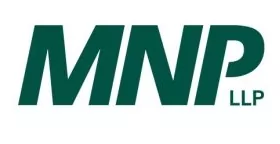Taxes! What many people in Agriculture don't understand, is that taxes are a sign of prosperity. In an industry that has been taught to avoid paying taxes at all costs, the thought of forking over any taxes even in years of record profits is hard to swallow. Canadian Agriculture Tax rules allow for deferrals of cash profits and the ability to calculate taxable income on a cash basis has resulted in most of those entities being able to avoid paying any tax. Deferrals work but the only way to get out of the tax hangover you create, is to rely on the fact that a disaster of a year has to occur to use up any income that has been deferred. As an advisor, counting on a bad year seems ludicrous as a tax strategy but history has shown this to be the norm rather than the exception, which is why it continues as a solid tax strategy today.
Unfortunately for many years, profit has been hard to find and thus when it comes, the ability to replenish equity on the farm is a necessity. A tax partner of mine used to say (when personal tax rates were close to 50%) he wished he paid $5M in taxes because that meant he made $10M that year. Taxes are a result of being profitable and should be more widely seen as a sign of success. That does not mean you have to be happy about it, but it does mean you are doing something right and a history of paying tax indicates your farm is profitable and you are routinely making good management decisions which result in profit.
If continued profitability is planned for your operation, you might want to consider changing the legal structure of your operation to a partnership, joint venture or company. Profitability can allow you to include the next generation of the family in the business. You might be able to kill two birds with one stone by restructuring and/or changing ownership of your farm. New structures can reduce taxes owing by utilizing corporate tax rates, or allow for income splitting with the next generation. Alternatively, restructuring can provide flexibility if the ultimate goal is to exit the industry. Given the significant rise in value of your operation's equity (land, quota and inventory values especially) gaining access to multiple capital gains exemptions available to the family farm can also be achieved as an additional benefit. This requires significant tax planning, so don't try this at home folks.
Don't forget that as your operation continues to be profitable, other benefits, such as increases to your AgriStability margins are occurring since the program is based on your accrual profit. Accrual profits are usually larger that your cash profits if you have been taking advantage of deferrals and prepayments of input expense or purchasing inventory. Yes, I know you have all heard how the changes to this program have made it less attractive. However, the last couple of years of profit in the grain sector has resulted in significant increases to the five year margin averages and so 70% coverage of a $2M ($1.4M) is far better than 85% coverage of $1M ($850,000) based on old program coverage and old industry margins. If the beef and hogs can maintain profitability for a couple of years, being in AgriStability makes sense as it is the only safety net available in case of a crash. Remember, AgriStability is a disaster program and you really never want a payment out it as this means you have had a wreck, but that is exactly when you will need the financial protection the program provides. You just might have to wait a while for it.
So as you curse writing that tax cheque and blame your accountant for not working hard enough, remember no one went broke locking in a profit and make sure you know where profit shows up on your farm by knowing your true costs of production. I know, I know spoken like a true accountant!
The content of this article is intended to provide a general guide to the subject matter. Specialist advice should be sought about your specific circumstances.
[View Source]

